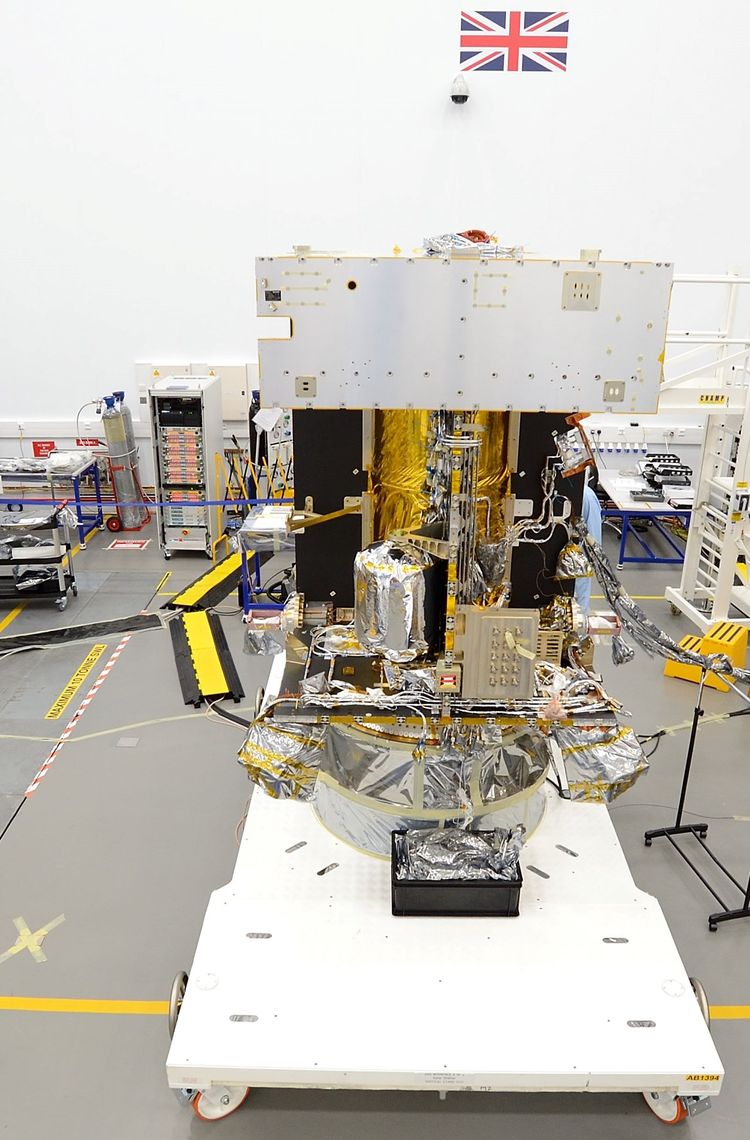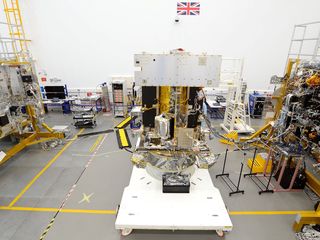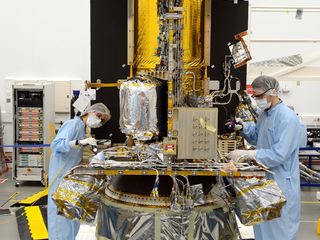Stevenage, 21/08/2017 - Today’s total Solar Eclipse across the United States of America will provide a spectacular view of the mysterious Solar Corona, the one million degree “halo” around the sun, which can only be seen from Earth when the Moon passes in front of the bright solar disk, which otherwise completely drowns out the faint light of the corona.
Scientists lucky enough to be able to see the Solar Eclipse from Earth will be studying this rare glimpse of the corona during the one hundred and sixty seconds or less that the eclipse lasts, to try to answer the many unanswered questions about this mysterious corona. Noone yet knows for instance, why the corona is more than 100 times hotter than the surface of the Sun.
Meanwhile the European Space Agency spacecraft Solar Orbiter is in the final stages of spacecraft integration at the Airbus spacecraft assembly hall in Stevenage, UK.
Solar Orbiter will be launched in February 2019 into a close orbit around the Sun and will allow scientists to study the solar corona in much more detail, for much longer periods, and at a much closer distance that can ever be reached here on the ground, or for that matter, by any spacecraft circling the Earth. 10 instruments will be flown that will study not only the corona but the Sun’s disk in great detail, the solar wind and the solar magnetic fields which will give us unprecedented insight into how our star works, and how we can better predict periods of stormy “space-weather” that the Sun throws our way from time to time.
The last of the ten instruments is being installed this month and the next step is system testing before the heatshield, antennas and boom are added towards the end of the year. In addition, the first instrument end-to-end electrical test has been performed successfully showing that the system works completely as expected.
By the time of the next global total eclipse, across the Pacific Ocean and South America on 2nd July 2019, Solar Orbiter will have begun its three and a half year journey to the inner solar system to get close to our Sun.
About Airbus
Airbus is a global leader in aeronautics, space and related services. In 2016, it generated revenues of € 67 billion and employed a workforce of around 134,000. Airbus offers the most comprehensive range of passenger airliners from 100 to more than 600 seats. Airbus is also a European leader providing tanker, combat, transport and mission aircraft, and is one of the world’s leading space companies. In helicopters, Airbus provides the most efficient civil and military rotorcraft solutions worldwide.
Your media contacts
Contact us
Ralph Heinrich
AIRBUS | Defence and Space
Francisco Lechón
External Communications - Airbus Space Systems, Spain
Jeremy Close
AIRBUS | Defence and Space
Guilhem Boltz
AIRBUS | Defence and Space


